Research
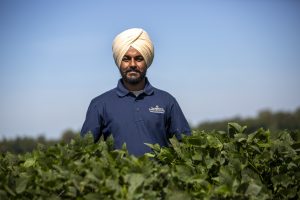
Sep. 3, 2024
Graduate Student Spotlight: Q&A with Harmeet Singh
Harmeet Singh is pursuing a Ph.D. in plant, insect and microbial and conducts his research at the Fisher Delta Research, Extension and Education Center in Portageville, Mo.
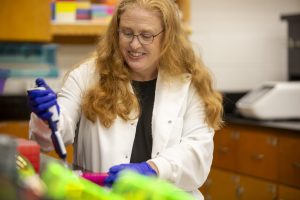
Aug. 14, 2024
MU animal sciences faculty members help transform agriculture and endangered species conservation with ruminant genome research
A University of Missouri College of Agriculture, Food and Natural Resources (CAFNR) researcher is helping enhance agricultural productivity and sustainability while supporting the conservation of endangered species.
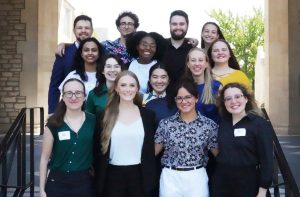
July 31, 2024
CAFNR Students Selected for Honors College Cherng Summer Scholars Program
The Cherng Summer Scholars program allows Honors College students at the University of Missouri to explore their passions through research projects aimed at questions they are interested in analyzing.
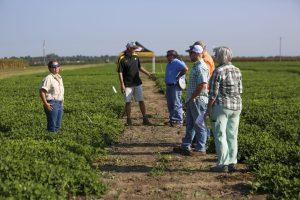
July 29, 2024
T.E. “Jake” Fisher Delta Research, Extension and Education Center to host second annual Ag Research Expo
Angelica Crosby, research technician and plant science and technology graduate student, talks to participants about growing peanuts in Missouri during the 2023 Ag Research Expo. University of Missouri’s T.E. “Jake” Fisher Delta Research, Extension and Education Center (FD-REEC) invites the public to its second annual Ag Research Expo Thursday, Aug. 22. Farmers and other individuals will have the opportunity for an in-person look at the latest research conducted at the REEC as well as an opportunity to talk to and see demonstrations from several industry partners. This event will combine the traditional field day experience with an indoor expo allowing…
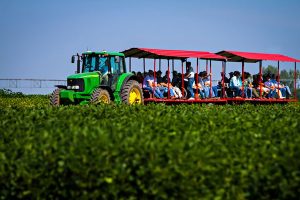
July 24, 2024
Mizzou field days set for sites across state
From August through October, events are planned across the state at Extension and Education Centers (EECs), administered by MU Extension, and at Research, Extension and Education Centers (REECs) that comprise the MU College of Agriculture, Food and Natural Resources (CAFNR) Missouri Agricultural Experiment Station.
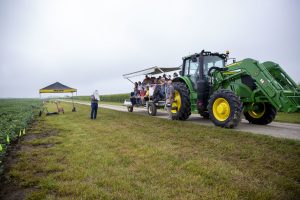
July 19, 2024
Northern Missouri Research, Extension and Education Center to host field day
The University of Missouri’s Northern Missouri Research, Extension and Education Center (NM-REEC) invites the public to its annual Field Day on Thursday, Aug. 1, where attendees have the opportunity for an in-person look at research conducted at the REEC.
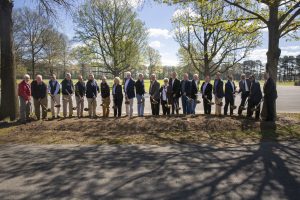
July 18, 2024
Planted for Growth
Across the Missouri Agricultural Experiment Station (MOAES), faculty are cultivating not just plants and livestock, but a brighter future for generations to come. That means not only continuing the research that helps nourish people across the globe but also tending to and growing the facilities that help make that research possible.

July 5, 2024
Plant Science and Technology researcher part of $10 million USDA grant to accelerate adoption of climate-smart agricultural practices
The five-year project, funded by USDA’s National Institute of Food and Agriculture and led by Ohio State University, will work with farmers ‘From the Ground Up’

June 26, 2024
DAREC Symposium poster winners announced
The new MU Digital Agriculture Research and Extension Center (DAREC) held its first-ever Digital Agriculture Symposium June 20-21. The symposium included a poster session, and four students, two graduate and two undergraduate, were recognized with awards for their work. Rana Das poses with his first place winning poster during the first DAREC Symposium. The following students placed in the poster session: First place: Rana Das, pursuing a Ph.D. in biological engineering Second place: Trace Thompson, pursuing an M.S. in plant, insect and microbial sciences Third place: Madi Mitchell and Morgan Mathison, both pursuing a B.S. in plant sciences…

June 6, 2024
Mizzou Water Center receives more than $700,000 in EPA seed grant funding
Cross-disciplinary researchers to look at water quality issues through eight research and education projects